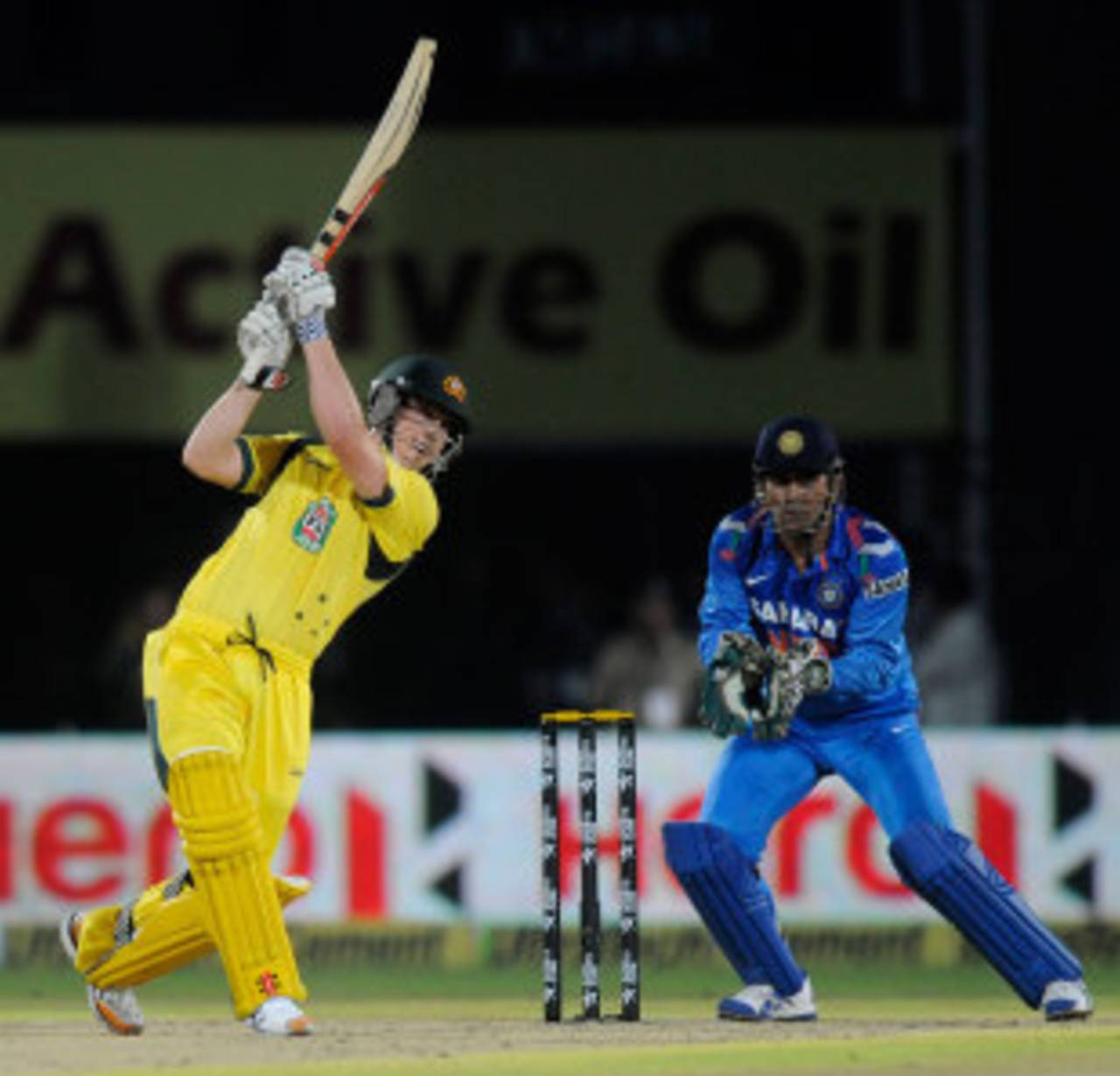On a night of erudition and deep thought on what cricket means through the psychoanalyst eyes of
Mike Brearley, it was his 1981 Ashes tour adversary and now Australian selector
Rod Marsh who floated the most radical concept for the future health of the game. In a discussion following Brearley's Bradman Oration for 2013, Marsh offered the suggestion that Twenty20 matches be restricted to players over the age of 30.
While careful not to attribute the idea to himself, nor even express his wholehearted support for the concept, Marsh forecast the possibility of T20 becoming a sort of long service reward once cricketers had fought through the longer game for their club, state and country. Such a scenario would lengthen the careers of those players who reached their later years with physical and mental baggage, while also eradicating the current trouble most nations are experiencing around grooming young players for three wildly disparate formats.
Among the most versatile and adaptable cricketers currently playing the game are the group still old enough to have gone through their formative years when sound fundamentals of defence, strike rotation and technique were the first order of business. In recent years T20 has increased the impetus for developing players to build up on power and learn outlandish shots well before they have established a bedrock game, leaving many floundering in first-class or Test match contests.
"A wise man said to me not that long ago that you shouldn't be allowed to play Twenty20 cricket until you're 30," Marsh said. "And if you just stop and think about that, I don't think that's a bad solution. Maybe it should be the topping on the cake after your career, after you've fought your guts out for your country, after you've given everything to the real form of the game, then you get your rewards by playing the short form of the game. I'm not saying I agree with it necessarily, but I'm not saying I disagree with it. In fact I'm sitting on the fence."
Sharing the panel with Marsh, Brearley and the former Australia women's captain
Alex Blackwell,
Greg Chappell said the struggle to adapt to Test matches, T20 and everything in between at an early age was the source of an almighty struggle for many players and their mentors. As Cricket Australia's national talent manager, Chappell has often glimpsed the tension between such contrasting goals.
"It's a heck of a challenge," he said. "The modern cricketer is challenged more than any other generation before with the different formats and the adaptability required to go across the formats. I think it will be very hard for most cricketers to play all three formats. It is a real challenge for young cricketers to try to develop their game to be chopping and changing so much and playing so much T20 cricket early on. What it requires to be a good hitter is very different to what it requires to be a good batter."
Brearley's address, delivered at the Langham Hotel in Melbourne, had ruminated on how cricket and sport in general could mean nothing and everything in the same breath, and how it was arguably more respectful to an opponent to give them no quarter on the field rather than to be insincerely courteous. Later, when pondering how cricket had changed, he said the preponderance of support staff and computer analysis had complicated the game for captains and coaches, while limiting a player's ability to think on his feet.
"The biggest change is the number of people around the dressing room, apart from players," Brearley said. "When we came to Australia we had a manager, a physio, a scorer and maybe an assistant manager … we didn't have a coach, and if we did it was the assistant manager who might do a bit of coaching. Sometimes I'd be worried he was getting someone to try to change at the beginning of a cricket tour when if he was going to be making that sort of change he should be doing it some other time.
"So I think the difficulty of having all these people around the dressing room, all of whom have got to do something, or be seen to do something, and for a captain and coach to manage that lot as well as the team seems to me a great difficulty.
"Cricket is much the same in the main central ways … but the emphasis on computer information could turn people from a certain sort of spontaneity into something that becomes cut off and rather external. I heard the story of a young English bowler in a 50-over match who had no idea whatever about the tactical state of the game when they were fielding, he was only worried about that the right wrist was at exactly the right angle."
Daniel Brettig is an assistant editor at ESPNcricinfo. He tweets here
